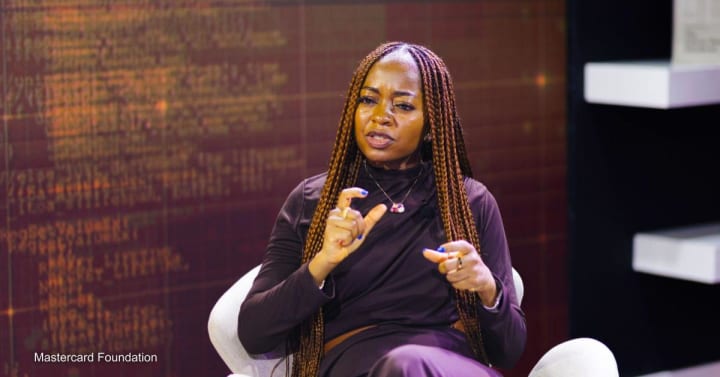
Proper diagnosis is the cornerstone of effective disease treatment. On the African continent, however, which bears over 20% of the global disease burden, diagnoses are often incorrect — or missing altogether.
Artificial intelligence, or AI, may be changing that. Ifeoluwa Dare-Johnson, a Nigerian innovator, created an AI-powered application that enables users to do diagnostic testing from the comfort of their homes.
Her solution, Healthtracka, a healthtech company working to improve access to health care in Africa, has delivered 40,000 at-home tests so far. We caught up with Dare-Johnson in Kigali, Rwanda, on the sidelines of the Global AI Summit on Africa, where she spoke about the inspiration behind Healthtracka, the challenges she’s faced, and the way AI is transforming the health care sector in Africa.
This conversation has been edited for length and clarity.
Why did you create Healthtracka? What gap were you trying to fill?
I started Healthtracka after a personal tragedy: I had lost my dad. What we didn’t know — and the doctor told us — was that he had hypertension and diabetes that were untreated. We never knew until the day he just collapsed. It was while I was mourning that I realized this was a bigger problem than just him. Millions of Africans are going about their day-to-day, not knowing that they have health conditions.
This means that most people are left undiagnosed until it is too late. It is imperative that we solve that problem.
Can you tell us how Healthtracka uses home testing to offer personalized health insights?
Users on Healthtracka can order lab tests [for example, for a range of sexually-transmitted infections or for chronic conditions such as diabetes, high cholesterol, or hypertension]. [In some cases,] phlebotomists/technicians from Healthtracka come to your home to take your samples; Healthtracka also offers some self-sampling kits. You then log into your dashboard online, and your result is there in a few days.
How does Healthracka leverage AI?
It is the predictive analysis of it. For example, Lola AI [Healthtracka’s AI-powered period tracker] is a women’s health assistant. If you input that your period was a certain date last month, Lola is able to tell you when your next period is and also guide you in terms of any other triage that you need. If you need to speak to a doctor, Lola can then give you a link to speak to a doctor by phone. Healthtracka also uses AI internally to [process] user inquiries.
How has Healthtracka positively impacted diagnosis in Nigeria?
When we were launching Healthtracka, everybody else was doing telemedicine. Diagnostics was [tricky] because people still felt like you needed to send patients to the lab. We have proven that phlebotomy [a procedure in which a needle is used to take blood from a vein, usually for laboratory testing] can actually happen remotely, which is changing the way people are thinking about testing now. In fact, we launched an HPV self-sampling kit where women can screen for cervical cancer from home. Less than 9% of Nigerian women have ever been screened for cervical cancer. But with the kits, people are now screening for cervical cancer. And Lola is being used in over 47 countries, and over a hundred thousand conversations have happened on Lola.
Reproductive health care is one of the areas for which you provide testing. How has AI helped improve access?
When we were building Lola, we had an option for mobile apps, but we asked ourselves about the regular Nigerian woman in northern Kaduna — how would she access Lola as a medical health assistant that can help her? We decided to build that AI on WhatsApp, as the app is widely used across the country. So with that product, people with phones that have WhatsApp can actually access AI solutions that help them improve their health, especially in reproductive health.
How can AI bring Africa closer to the Sustainable Development Goals target 3.8 of universal health coverage?
I truly believe that AI is the opportunity for us to catch up and actually bridge the gap that we have, especially with infrastructure deficits. We may not be able to solve all our problems in terms of infrastructure, but with AI, we actually can accelerate closing that gap.
AI is still in its early stages in Africa, where it takes us time to catch up with the rest of the world. Financing has been a challenge because health care needs patient capital, but most of the time, that becomes very competitive. You need to find that kind of funding, and it’s difficult. That impacts how much testing and how much piloting [you can do] — innovation costs money.
This summit’s theme was ‘AI and Africa’s Demographic Dividend: Reimagining Economic Opportunities for Africa’s Workforce.’ Given this aspiration, what is your main takeaway?
If Africa is not at the table, then it definitely will be on the menu. As Africans, we need to be at the forefront of driving AI solutions and innovations. We already have the people, the use cases are there. We need to be ready to try, fail, pilot, and scale. Africa needs to unite and actually solve problems strategically by consolidating and leveraging AI.




